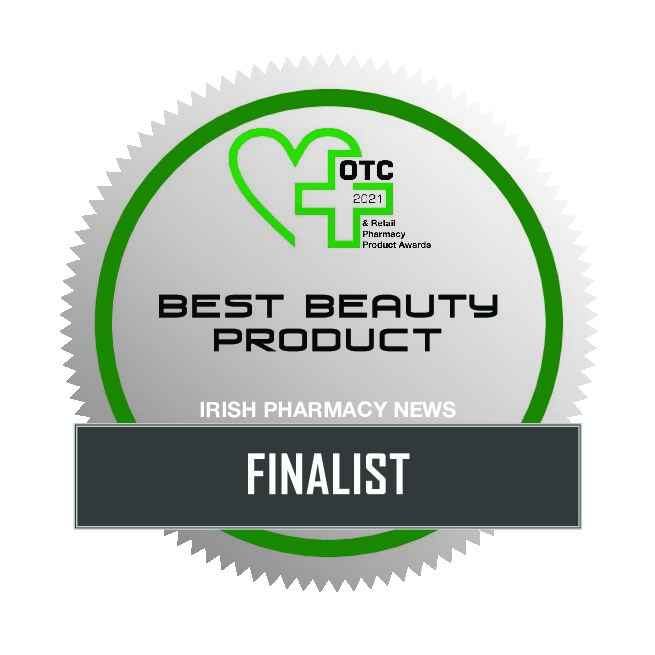Written by Oisín ÓhAlmhain, Hospital Pharmacist, Connolly Hospital, Blanchardstown
Whether it is the pictures of marine wildlife dead with stomachs full of shopping bags, reports of a great swirling island of waste in the Pacific gyre, or seeing pretty corners of our rural or urban landscape blighted by dumping, I think we can all agree that it is time we did something about reducing our collective packaging waste problem. Whether you think it should be action on a central level by regulators, or individual actions, pharmacy can play our part in protecting our health and future.
There might even be something in it, with a growing zero waste community looking for businesses that share their outlook, and don’t outsource the cost of disposal of packaging to the consumer. There is a cost to pharmacies of disposing waste, and a moral imperative for us all to look at how our dependence on fossil fuels might be feeding a biodiversity crisis and put our pristine green countryside at risk.
In pharmacy, we have a long history of careful stewardship of scarce resources. There are stories of our older colleagues re-using pharmacy printer labels as notepaper. Colleagues of mine from 25 years ago, will remember me cajoling them to separate their waste, and then bringing boxes of paper and card to a papermill, and cardboard to friend with a wholesale business.
Since then, the amount of packaging in pharmacy has grown exponentially. Better protection for the product has meant that composite blister strips have replaced large tubs and jars of tablets, and injections have moved into prefilled syringes. Patients are on a larger number of tablets. The Covid-19 epidemic has created a mountain of disposable paper masks, and discarded cleansing wipes.
Disposable cups of whichever grande-double-frappucinno is required to fuel the modern pharmacist or technician have replaced instant coffee in ceramic mugs. In a rom-com 20 years ago, Mr. Bean upped the ante by several notches, using rose petals, ribbons, and heaven knows what else, to package a small gift.
We don’t need to drown in this waste, or, follow the advice of Homer Simpson, and have someone else sort it out. We can go back to the three Rs: Reduce, Reuse & Recycle:
Reducing our plastic packaging starts with attempting to stay with original pack size, where patient’s allow. (This will also save on plasters for the worn fingers of staff). There are many varied opinions on prepared dosettes/blister packs, but these should be used only when they correct an established compliance issue, as they produce so much extra
non-recyclable waste. Making sure that deprescribing happens, and reducing unwanted dispensing by having patients medication lists reviewed is also part of the solution, as well as optimally managing stock.
There is less scope for reuse, particularly in the current pandemic. However, making sure that goods inwards come in plastic totes that are returned to wholesalers mean you are not left with dealing with their excess packaging waste. Cold-chain items are a particular problem, but the wholesalers will take these bulky boxes back, if asked nicely (just not on the Friday of a bank holiday).
Having branded keep cups for your team (or customers) also means that you can have a cleaner conscience as you boost your energy. Bamboo is the ideal material for these cups,
as when they finally break they can be recycled as compost. (For more on this see the Conscious Cup Campaign at https://consciouscup.ie)
Key to recycling is having a system to separating your waste. This might mean accepting packaging back from patients or wards, to ensure that a critical mass of packaging is available. When looking at products to purchase, ask yourself whether there is a compostable or recyclable alternative. For instance, some medication blister strips (relatively
few) are available as aluminium foil. We should be asking the industry to supply more products in aluminium.
Packaging suppliers are also now starting to supply biodegradable griplock bags, and biodegradable plastic tablet vials. For efficient composting, these need to go to industrial composters, and so it is important that patients and staff know this. The same goes for compostable coffee cups. These products may take a long time to biodegrade if left in the
general waste, and may release greenhouse gases (which is another story).
Healthcare sustainability is a growing discipline. The Centre for Sustainable Healthcare (https://sustainablehealthcare.org.uk) and NHS Forest (https://nhsforest.org) in the UK are leading the way.
The HSE has its own National Healthcare Sustainability Office (not as tidy a URL: https://www.hse.ie/eng/about/who/healthbusinessservices/nationalhealth-sustainability-office/) which has some resources on waste reduction and prevention. The Environmental Protection Agency (www.epa.ie) also has advice for businesses. The challenge is always to make sure that the changes are sustainable, and that the amount of greenwashing is minimised. But again, that is something for another day.
Oisín ÓhAlmhain was the Green Party candidate in the 2011 and 2016 general elections and the 2014 local elections in Dublin South Central and was their health spokespeople from 2011-2016. He is a hospital pharmacist, and is actively looking at making that sector more sustainable. He also holds an MA in healthcare management, which includes a diploma in public service management.













